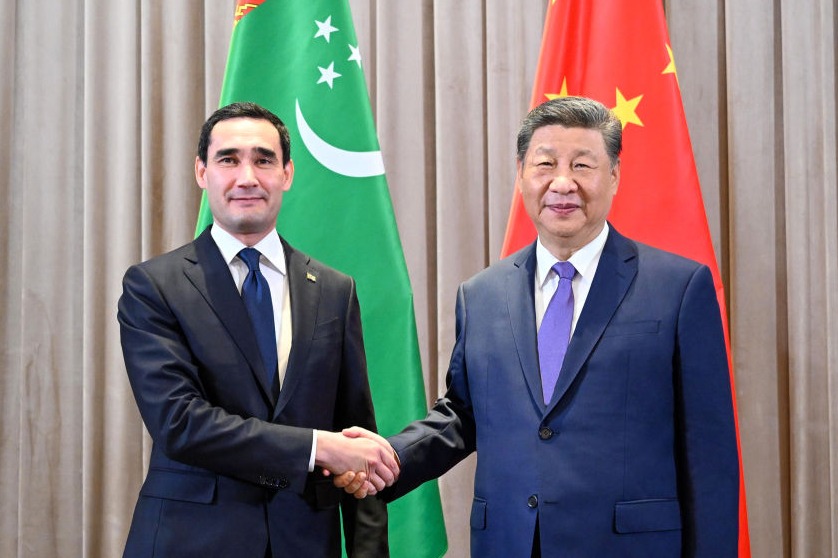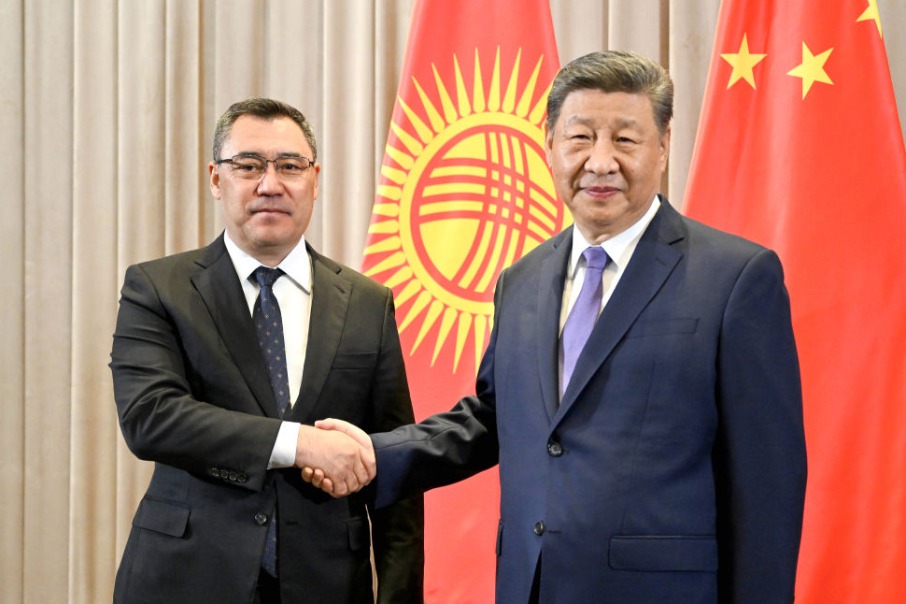Anti-graft agenda on the right track


Corruption is a cancer to which no society is immune. It raised the death toll of Iran's recent earthquake, owing to substandard housing construction 10 years ago. It has afflicted the United States Navy, which is now investigating more than 60 admirals and hundreds more officers for fraud and bribery. And it has brought down countless governments.
President Xi Jinping, a keen student of history, is well aware of the destructive potential of corruption-and has confronted the phenomenon head-on. But, as China's economy continues to modernize, much work remains to be done.
Before reform and opening-up were launched in the late 1970s, corruption in China was relatively petty, as the market's limited size constrained opportunities for administrative abuse. With the widening of the market, however, inadequate legislation and weak institutional safeguards facilitated increasingly brazen corruption and administrative abuses. But, as income and education levels rose, people became less tolerant of such abuses, increasingly demanding transparent and lawful delivery of basic public goods, from infrastructure and environmental protection to a fair distribution of income and opportunities.
Recognizing the potential of corruption to undermine the legitimacy of the Communist Party of China and the authority of the State, Xi has embarked on an anti-corruption campaign that is unprecedented in scale, scope and depth. Over the last five years, that campaign has resulted in the dismissal, sanction, or other punishment of about 440 provincial-level officials, 8,900 municipal-level officials, 63,000 county-level officials, and 278,000 village-level officials. Also, some 58,000 individuals have been referred for further criminal investigation. Which means about 1.7 percent of the Party's 89 million members-including "tigers" (high-level corrupt officials) and "flies" (lower-level officials)-have been affected.
But the campaign is far from over. At the 19th CPC National Congress in October, the Party endorsed the setting up of a National Supervision Commission to consolidate and modernize the anti-graft agency, so that it will expand beyond Party members to cover all officials exercising public power at all levels. But building robust and lasting anti-corruption institutions will not be easy, owing to the ability of corrupt officials to capture such institutions.
Consider the kind of corruption in advanced economies exposed by the 2007-08 global financial crisis, in which vested interests secure the enactment of laws and regulations that entrench their own advantages. In the US, the Supreme Court's infamous Citizens United decision of 2010 encourages such outcomes, by allowing corporations and unions to spend unlimited sums anonymously to help secure the election or defeat of individual candidates. As a result of the decision, outside spending in the 2016 election cycle reached nearly $1.4 billion, compared with less than $100 million in the 2006 cycle.
So corruption is not just a failure of the state; it is also closely linked to the failure of market, legal, and ideological systems. If the economic and social power that financial markets and network economies tend to create can be used to capture and control political power, an effective system of checks and balances becomes virtually impossible.
David Graeber, an anthropologist and a professor at London School of Economics, frames the problem in terms of how political actors approach bureaucracy. He says that those on the political right condemn excessive bureaucracy. Yet their solution-to reduce the role of the state and allow market forces to take over-is actually what fuels cumbersome bureaucratic expansion.
Graeber sums up this argument in what he calls an "iron law of liberalism": "any market reform, any government initiative intended to reduce red tape and promote market forces, will have the ultimate effect of increasing the total number of regulations, the total amount of paperwork, and the total number of bureaucrats the government employs". In other words, markets can work efficiently only with the guidance of a competent, honest and fair state, with effective protections against abuses and corruption from both the market actors who offer bribes and the officials who accept them.
What does this mean for China? For starters, the country needs to develop modern mechanisms for resolving civil disputes arising from unclear property rights or rules for market transactions. Here, China can take inspiration from the Western common law system, in which cases are decided on the basis of precedents, or from the use of administrative courts to resolve disputes between individuals and the bureaucracy. Hong Kong's Independent Commission Against Corruption also provides a useful model.
At the same time, China must reduce the incentive for corruption, by raising the pay of public servants at all levels. As it stands, officials' salaries are usually set with reference to the overall level of national income. But the resulting pay is not high enough to mitigate the temptation officials face to use their enormous power to profit in key sectors, such as energy, finance and real estate.
Similarly, in advanced economies, officials not only receive much higher pay; they are also often subject to limitations on what they can do, and when, after they leave office. In China, by contrast, officials can exchange favors while in office for higher-paying jobs or benefits after retirement.
Maintaining accountability and preventing vested interests from capturing institutions-a process that involves entrenching morality within vulnerable bureaucracies-will be no easy task. It may well be the toughest challenge Xi faces in realizing the Chinese Dream. But, for now, China's anti-corruption agenda seems to be on the right track.
Andrew Sheng is distinguished fellow at the Asia Global Institute of the University of Hong Kong and a member of the UNEP Advisory Council on Sustainable Finance, and Xiao Geng, president of the Hong Kong Institution for International Finance, is a professor at the University of Hong Kong. Project Syndicate

































